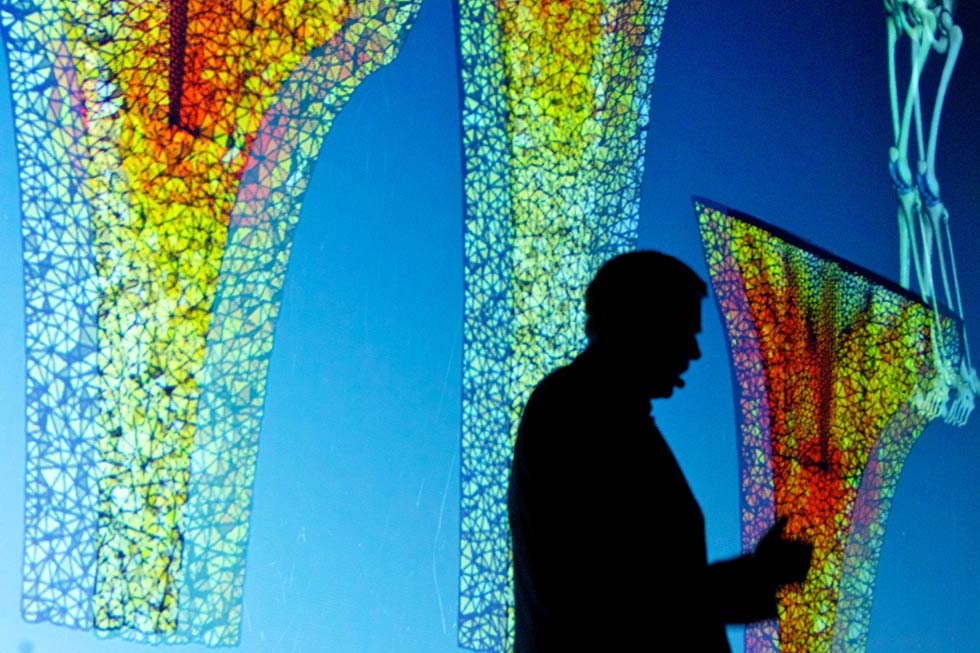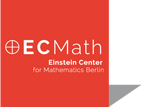Start-up
Project: Continued Professional Development
Start-up Phase
The fast increase of scientific knowledge and the rapid development of new mathematical technologies and methodologies asks for new concepts and strategies for life-long
learning of present and future scientists. ECMath established and supported the startup phase of a Continued Professional Development (CPD) Unit that organized three pilot CPD events,
provided an analysis of the market situation as well as a stakeholder analysis and detailed proposals for strategic positioning, conceptual framework and a portfolio of a future business company.
Spin-off company
After the start-up phase in ECMath, the business company “ACHT Berlin – Science Communication and Services”
that is continuing the activities of the CPD unit has been founded by the project collaborator Sandra Patzelt-Schütte. In addition to the original business field “Continued Professional Development”
activities have been recently extended to “Science Conference Management”, and “Events Management”.
Project: Model-based spectrometer calibration for toxin determination in food
Start-up Phase
The company aokin produces and sells automatic analytic devices for the quantification of toxins in food. At present, the calibration of these devices is costly and time-consuming.
The goal of this project was to develop a model-based, computer-aided automatic calibration routine, which not only reduces the measurement effort, but also allows for the control of measurement errors.
Measurement curves are generated by kinetic fluorescence-polarisation and are evaluated by error-oriented Gauss-Newton algorithms which compare the measurement data to well-defined reaction kinetic models.
This allows for the determination of kinetic rate constants and unknown toxin concentrations.
Results
For the mycotoxin aflatoxin (AFLA) a toxin- and device-specific parametrized mathematical model has been derived that allows for more accurate calibrations
(relative error below 4% vs. 10% conventionally) with less effort (measurements at only 3 instead of 5 concentrations). Similar results were obtained for deoxynivalenol (DON), ochratoxin (OCH), and T-2.
Furthermore, corresponding pipelines of software tools have been developed in MATLAB.
Transfer
These tools are expected to be integrated into a new product line at aokin.
Project: Proteome-based early stage lung cancer diagnostics
Start-up Phase
Cancer is one of the leading cause of death in Germany. About 450,000 new cases are diagnosed every year. Early diagnosis of the disease and early relapse monitoring are
currently the best available options to improve patient survival.
The goal of the project was to provide a proof of concept and a software prototype for an early stage lung cancer test by means of analyzing proteome based mass spectrometry (MS) data,
previously developed by us. The underlying hypothesis is that a disease changes a specific amount of proteins (i.e. their concentration) in the body of the afflicted patient in a characteristic way,
and thus has a specific fingerprint. For the proof-of-concept it has to be proven, that a reproducible acquisition of data, analysis, and diagnose is feasible under diagnostic everyday life conditions.
Results
Work was done on the simulation of degradation processes and initial methods for the improvement of signal classification were developed (patent submitted). Furthermore, recovering the missing data
from the partially redundant information available turned out to be crucial. Performed tests with variants of the Unscented Kalman Filter and methods from the area of Matrix Completion showed good results.
The method that finally resulted is based on new works on the topic of Compressed Sensing, in particular on semi-definite optimization.
Also, a software prototype, which contains all necessary (and newly developed) algorithms for performing diagnostics based on MS data has been developed in very fruitful collaborations with our
industrial partner SAP Innovation Center.
The resulting software can be used for (1) extracting a disease specific fingerprint from mass spectrometry data and (2) perform a diagnosis for a given datasets. The software has been successfully
applied to a lung cancer dataset that was created under real-live conditions in a hospital of our clinical partners from Helios Clinics, Berlin.
Transfer
The mathematical algorithms developed in this project were furtherdeveloped towards real-world applicability. The resulting intellectual property is on the way to be transferred into a spin-off company.
For a corresponding business plan this initiative already won the second place in the Berlin-Brandenburg Businessplan Wettbewerb 2013.

